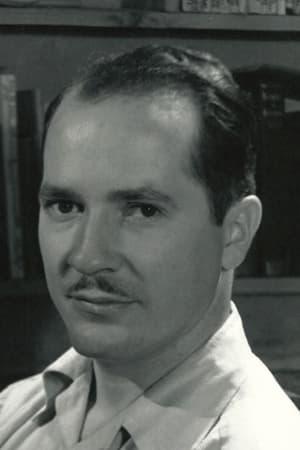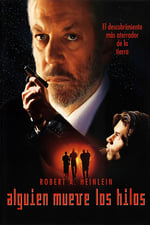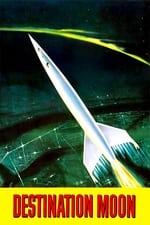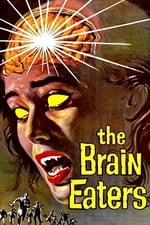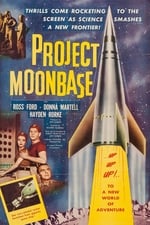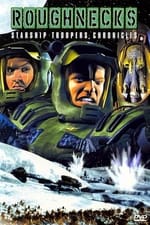Informazioni Personali
Conosciuto Per Scrittura
Crediti Conosciuti 13
Sesso Maschio
Compleanno 7 luglio, 1907
Giorno della Morte 8 maggio, 1988 (80 years old)
Luogo di Nascita Butler, Missouri, USA
Conosciuto anche come
- Роберт А. Хайнлайн
Valutazione Contenuto
100
Sì! Sembra buono!
Entra per segnalare un problema
Biografia
From Wikipedia, the free encyclopedia.
Robert Anson Heinlein (July 7, 1907 – May 8, 1988) was an American science fiction writer. Often called "the dean of science fiction writers", he was one of the most influential and controversial authors of the genre. He set a high standard for science and engineering plausibility and helped to raise the genre's standards of literary quality. He was one of the first writers to break into mainstream, general magazines such as The Saturday Evening Post, in the late 1940s, with unvarnished science fiction. He was among the first authors of bestselling, novel-length science fiction in the modern, mass-market era. For many years, Heinlein, Isaac Asimov, and Arthur C. Clarke were known as the "Big Three" of science fiction.
Heinlein was a notable writer of science-fiction short stories, and he was one of a group of writers who were groomed in their writing by John W. Campbell, Jr. the editor of Astounding magazine—though Heinlein himself denied that Campbell influenced his writing to any great degree.
Within the framework of his science fiction stories, Heinlein repeatedly integrated recognizable social themes: The importance of individual liberty and self-reliance, the obligation individuals owe to their societies, the influence of organized religion on culture and government, and the tendency of society to repress non-conformist thought. He also examined the relationship between physical and emotional love, explored various unorthodox family structures, and speculated on the influence of space travel on human cultural practices. His iconoclastic approach to these themes led to wildly divergent perceptions of his works and attempts to place mutually contradictory labels on his work. His 1961 novel Stranger in a Strange Land put him in the unexpected role of a pied piper of the sexual revolution, and of the counterculture, and through this book he was credited with popularizing the notion of polyamory.
Heinlein won Hugo Awards for four of his novels; in addition, fifty years after publication, three of his works were awarded "Retro Hugos"—awards given retrospectively for years in which Hugo Awards had not been awarded. He also won the first Grand Master Award given by the Science Fiction Writers of America for his lifetime achievement. In his fiction, Heinlein coined words that have become part of the English language, including "grok" and "waldo", and popularized the term "TANSTAAFL".
Description above from the Wikipedia article Robert A. Heinlein, licensed under CC-BY-SA, full list of contributors on Wikipedia
From Wikipedia, the free encyclopedia.
Robert Anson Heinlein (July 7, 1907 – May 8, 1988) was an American science fiction writer. Often called "the dean of science fiction writers", he was one of the most influential and controversial authors of the genre. He set a high standard for science and engineering plausibility and helped to raise the genre's standards of literary quality. He was one of the first writers to break into mainstream, general magazines such as The Saturday Evening Post, in the late 1940s, with unvarnished science fiction. He was among the first authors of bestselling, novel-length science fiction in the modern, mass-market era. For many years, Heinlein, Isaac Asimov, and Arthur C. Clarke were known as the "Big Three" of science fiction.
Heinlein was a notable writer of science-fiction short stories, and he was one of a group of writers who were groomed in their writing by John W. Campbell, Jr. the editor of Astounding magazine—though Heinlein himself denied that Campbell influenced his writing to any great degree.
Within the framework of his science fiction stories, Heinlein repeatedly integrated recognizable social themes: The importance of individual liberty and self-reliance, the obligation individuals owe to their societies, the influence of organized religion on culture and government, and the tendency of society to repress non-conformist thought. He also examined the relationship between physical and emotional love, explored various unorthodox family structures, and speculated on the influence of space travel on human cultural practices. His iconoclastic approach to these themes led to wildly divergent perceptions of his works and attempts to place mutually contradictory labels on his work. His 1961 novel Stranger in a Strange Land put him in the unexpected role of a pied piper of the sexual revolution, and of the counterculture, and through this book he was credited with popularizing the notion of polyamory.
Heinlein won Hugo Awards for four of his novels; in addition, fifty years after publication, three of his works were awarded "Retro Hugos"—awards given retrospectively for years in which Hugo Awards had not been awarded. He also won the first Grand Master Award given by the Science Fiction Writers of America for his lifetime achievement. In his fiction, Heinlein coined words that have become part of the English language, including "grok" and "waldo", and popularized the term "TANSTAAFL".
Description above from the Wikipedia article Robert A. Heinlein, licensed under CC-BY-SA, full list of contributors on Wikipedia
Scrittura
|
||||||
|
||||||
|
||||||
|
||||||
|
||||||
|
||||||
|
||||||
|
||||||
|
||||||
|
||||||
|
||||||
|
Creatore
|
